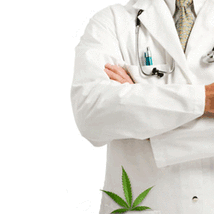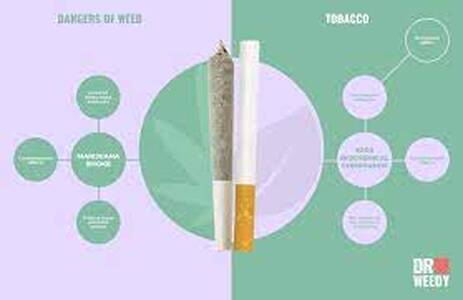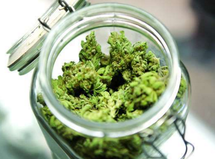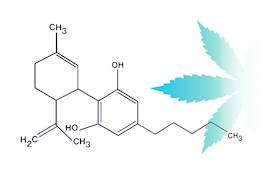|
The Old Toker, recently sent me a MedPage Today article on the age-old argument of Cannabis vs Tobacco. Scanning the article, I learned that MedPage Today was presenting age-old information. The article quotes a 2007 study out of Ottawa that has long been refuted. Is Cannabis smoking less or more harmful than Tobacco smoking? Once again, let’s look at the evidence. MedPage Today, you owe me. Despite a lack of updated information, Dr. Donald Tashkin, M.D., after a 30-year career as a UCLA Pulmonologist, has the definitive answer for the Tobacco vs. Cannabis question. He is well known for his studies on Cannabis smoking, emphysema, and lung cancers. In his long career, Dr. Tashkin received several grants from the NIH, specifically from NIDA, to study the effects of smoking Cannabis on lungs. In his 2013 publication titled, Effects of Marijuana Smoking on the Lungs, he concludes "...the accumulated weight of evidence implies far lower risks for pulmonary complications of even regular heavy use of marijuana compared with the grave pulmonary consequences of tobacco.” One Tashkin study even found a Cannabis using cohort had significantly less lung cancer than the Control cohort. His comment refutes the conclusion of earlier studies, including his own, and stands as the definitive response to the Cannabis vs Tobacco smoking question. That being said...Smoking anything is not a medically recommended habit. The ash debris from inhaled smoke is a lung irritant. The heat of the smoke contributes to lung tissue damage. If you can avoid the habit, I recommend it. A correlation with Cannabis smoke and chronic or recurrent bronchitis, notes Dr. Tashkin, is the only significant long-term effect to date. Many people smoke Cannabis for its acute effects. Physiologic muscle relaxation settles the body. In mere minutes cannabinoids pass through the lungs, enter the bloodstream, and rush to the brain. The immediate stress and anxiety relief after inhaling Cannabis is a welcome outcome. Molecular models explain how cannabinoids attach to receptors in the central nervous system and at the nerve-muscle junction causing these relaxing effects. Tobacco, paradoxically, produces similar results. The difference is that Tobacco works by activating the sympathetic “fight or flight” system whereas Cannabis affects the parasympathetic “rest and digest” system. The sympathetic nervous system acts in defense to danger whereas the parasympathetic nervous system repairs or heals. Is this is why Cannabis smoke is associated with a better outcome than Tobacco smoke? In regard to the dangers of smoking, the evidence continues to pile on. Results from a prospective longitudinal lung study were recently published in Respiratory Medicine, a peer reviewed science journal The study followed a group of people from birth, testing the lung function of Cannabis and Tobacco smokers at age 21 and 30. The results align with Dr. Tashkin’s conclusion. Tobacco smoking (with or without Cannabis) restricts lung function. However, Cannabis smoking alone does not consistently affect lung function.
Does this put the question to rest? Not really. In science, there is always the pursuit of more evidence. At least MedPage Today can now report evidence that is relevant. Smoking is the most popular method of Cannabis use. However, there are other means of inhaling. Vaporizing machines can be used to inhale Cannabis flower vapor produced at lower temperatures. Vape carts or vape pens do the same but use Cannabis oils with higher potencies. There isn’t much evidence on the long-term effect from inhaling oil vapors. Vape pen users beware. In 2019, some manufacturers of Vape Pens added Vitamin E oil in their products which resulted in illness and even death. EVALI is a serious condition in which a person’s lungs become damaged from substances contained in e-cigarettes or vaping products. It’s appropriate to note that no deaths have been reported that directly result from inhaling the smoke of Cannabis flowers. Maybe, in this case, the old way is the best way.  Times are changing... Since MediCann first opened its offices to the community, our providers have always been convinced of the medical efficacy of cannabis. Over the last 12 years, MediCann has seen the number of states joining the movement grow from 5 to 25 plus Washington D.C. The list of organizations that support medical cannabis include, the American Academy of Family Physicians, the American Nurses Association, the American Osteopathic Association, the American Preventive Medical Association, the American Public Health Association, the American Society of Addiction Medicine, the Lymphoma Foundation of America, The Montel Williams MS Foundation, Kaiser Permanente, the New England Journal of Medicine, and many more. High profile physicians, such as Dr. Sanjay Gupta, Dr. Dean Edell, and Dr. Andrew Weil also support cannabis for certain conditions. Those who continue to scoff at the potential of cannabis to help are simply without access to appropriate information or resource. Our discussion has changed from “Does cannabis help?” to “What does cannabis help?” The new MediCann would like to present itself as an intermediary to information and resources on the use of cannabis as medicine.  With greater acceptance comes greater responsibility… Now, more than ever, there are so many questions. “Does it really cure cancer?” Can I use it and not get “high”? The many years of prohibition left vital questions unanswered. Science has eighty years of inactivity to overcome. MediCann takes on the responsibility of investigating some of the answers through its association with the Clinical Endocannabinoid System Consortium (The CESC), a non profit research organization and the launch of its flagship program, The Dosing Project. Additionally, MediCann educates patients on where to find the best cannabis preparations for their symptoms diagnosis through our new Medicine Locator. Our News and Events page will keep you up to date on the latest on the growing cannabis knowledge and industry. We still refer potential patients to top rated physicians who provide evaluations for optimal and legal medical cannabis use. Our Doctor Locator page provides you with contact information to assist in scheduling an appointment by phone or email.  Not everything changes…. Science has identified potential for anti-cancer, anti-inflammatory, anti-seizure, anesthetic, anti-diabetic, anti-anxiety, anti-depressant and sleep agents all from the chemical components of the cannabis plant. Pharmaceutical companies are preparing cannabis based medicines for sale and financial investors are placing their bets on the best cannabis product. Our grassroots movement has blossomed into a burgeoning industry. Yet, you can still grow it easily and inexpensively in your backyard. We have a lot more to know. Throughout its existence, MediCann has always supported patients. As MediCann brings you more information and resources, our fundamental mission will not change. We look forward to many years as your partner in cannabis and health. |
AuthorJean Talleyrand, M.D., Archives
September 2023
Categories |
Mailing Address: MediCann 1336 Willard Street, C • San Francisco, CA 94117
Important Disclaimer!
The information contained in this site does not intend to replace any medical advice or care by a trained physician.
Any use of this information is solely the the responsibility of the user.
Important Disclaimer!
The information contained in this site does not intend to replace any medical advice or care by a trained physician.
Any use of this information is solely the the responsibility of the user.
© COPYRIGHT 2015. ALL RIGHTS RESERVED.



 RSS Feed
RSS Feed


